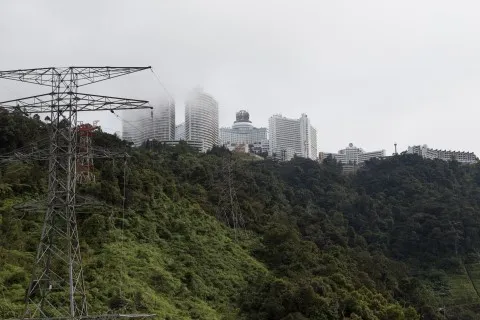
KEPCO's turnaround in 1H2014 operating profit is credit positive: Moody's
Improvement will strengthen KEPCO's financial buffer.
Moody's Investors Service says that Korea Electric Power Corporation's strong turnaround in operating profit in 1H 2014 is credit positive.
According to a release from Moody’s Investors Service, KEPCO announced the company recorded a strong turnaround in its unaudited and consolidated operating profit to KRW2.06 trillion in 1H 2014 from an operating loss of KRW436 billion in 1H 2013.
This strong performance follows a solid improvement in its operating profit to KRW1.5 trillion in 2013 from two consecutive years of operating losses in 2012 and 2011.
"The strong improvement in KEPCO's operating profit will strengthen its financial buffer against inconsistent tariff systems and its large investments in new power generation plants," says Mic Kang, a Moody's Vice President and Senior Analyst.
"In addition, the improvement is credit positive for KEPCO's six power generation companies, or GENCOs, given their close ownership and operational relationships," adds Kang.
Here’s more from Moody’s:
The strong improvement was driven mainly by a 5.4% tariff hike in November 2013, amid stabilizing fuel costs and a strengthening KRW against the USD.
Additionally, KEPCO reduced its reliance on costlier liquefied natural gas-fueled power plants after restarting three of its nuclear plants in January 2014.
Moody's expects KEPCO's retained cash flow/debt and funds from operations/interest to improve to 11%-15% and 3.2x -- 3.6x, respectively, in the next 12-18 months, from 9.7% and 3.1x for 2013.
Despite KEPCO's improving operating profit, Moody's believes the Korean government (Aa3 stable) is unlikely to lower the company's tariffs.
The government intends to curb excessive demand for electricity in the country and allow KEPCO to secure internal sources to fund its capital expenditures.
In particular, the commissioning of new base-load power plants in 2014-2015 will help KEPCO further improve its ability to generate cash from operations, even in the absence of a consistent automatic cost pass-through tariff system.
The A1 rating is based on the high likelihood of timely, extraordinary support from the Korean government, given KEPCO's important policy roles and the high reputational and contagion risks that may arise if it defaults.
The absence of explicit government guarantees for KEPCO's debt remains the basis for the one-notch rating differential between KEPCO and the government.
Korea Electric Power Corporation is Korea's only fully integrated electric utility and is the monopoly operator of the country's electricity transmission and distribution system.
It generates around 90% of the power consumed in Korea through its six wholly owned generation companies.








![Cross Domain [Manu + SBR + ABF + ABR + FMCG + HBR + ]](https://cmg-qa.s3.ap-southeast-1.amazonaws.com/s3fs-public/styles/exclusive_featured_article/public/2025-01/earth-3537401_1920_4.jpg.webp?itok=WaRpTJwE)
![Cross Domain [SBR + ABR]](https://cmg-qa.s3.ap-southeast-1.amazonaws.com/s3fs-public/styles/exclusive_featured_article/public/2025-01/pexels-jahoo-867092-2_1.jpg.webp?itok=o7MUL1oO)









 Advertise
Advertise


